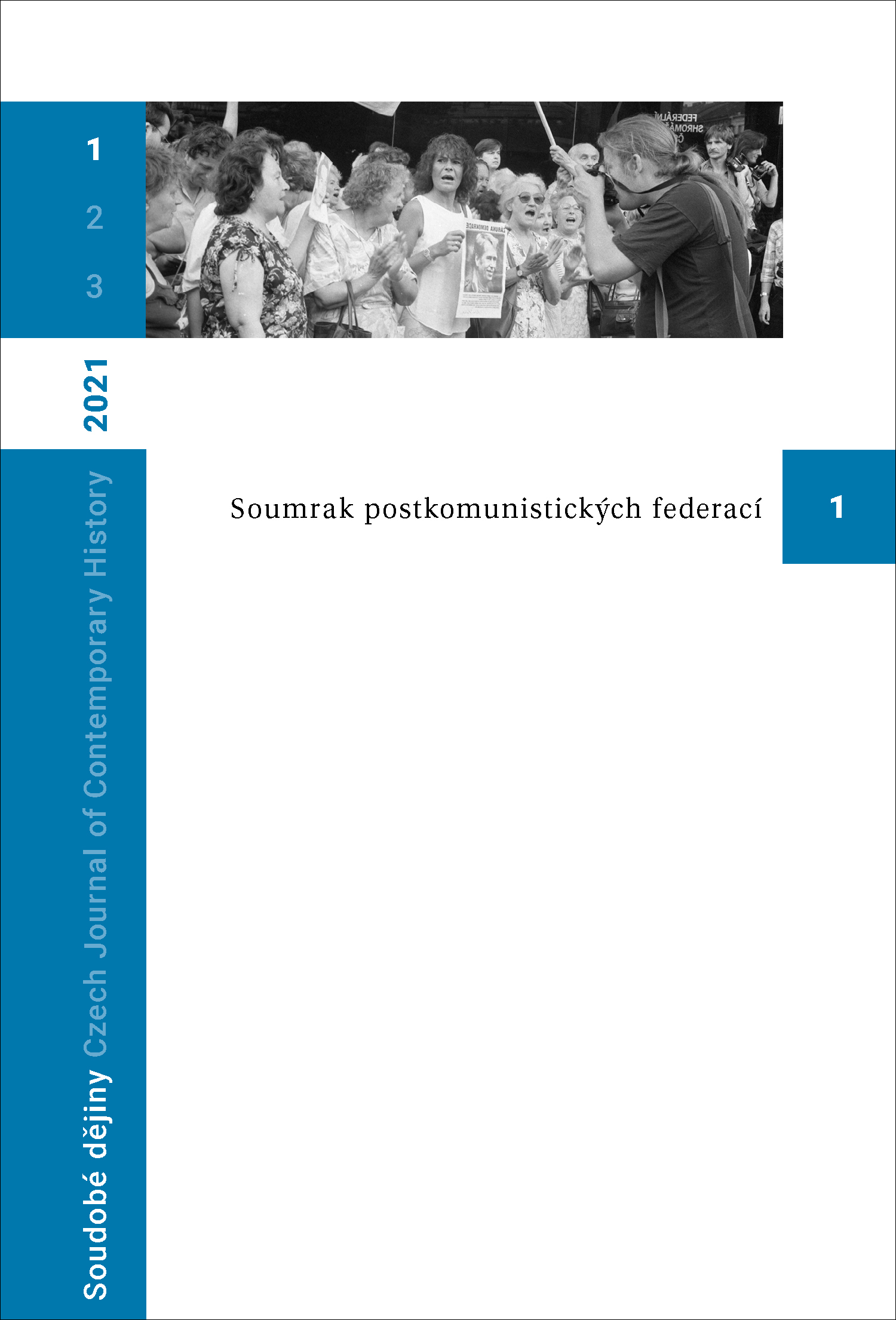Stalinův černý apoštol
Stalin's Black Apostle
Afro-American Singer Paul Robeson in Czechoslovakia
Author(s): Františka SchormováSubject(s): History, Cultural history, Music, Political history, Recent History (1900 till today), Interwar Period (1920 - 1939), WW II and following years (1940 - 1949), Post-War period (1950 - 1989), History of Communism, Cold-War History
Published by: AV ČR - Akademie věd České republiky - Ústav pro soudobé dějiny
Keywords: Paul Robeson;Czechoslovakia;United States;African American music;jazz;spirituals;Cold War;communism;cultural exchanges;Leftist internationalist networks;Civil Rights MovementMovement;
Summary/Abstract: Paul Robeson (1898–1976), an African American singer, athlete, actor, and Leftist political activist, visited Czechoslovakia in 1929, 1945, 1949, and 1959. He was in contact with official Czechoslovak structures, was writing about Czech music, and learning Czech. This article focuses especially on his 1949 and 1959 visits and Robeson’s economic and artistic relations to Czechoslovakia. It also explores the broader context of relations between Czechoslovakia and the Afro-American community against the backdrop of the early Cold War, decolonization processes, and the onset of the Civil Rights movement in the United States. In doing so, it also looks at mechanism of cultural exchange within the Radical Leftist internationalist networks, including the dominant role Robeson played as the “introducer” of African American music and culture in Czechoslovakia during the 1950s, and also at views of Czechoslovak cultural intermediaries, such as writer Josef Škvorecký (1924–2012) or musicologist, journalist and music critic Lubomír Dorůžka (1924–2013), on jazz and African American spirituals, which contrasted with those of Robeson. In the Czech context, Robeson is mainly remembered through Škvorecký’s critical comments, labelling Robeson “Stalin’s Black Apostle”. US accounts of Robeson, on the other hand, have often, and until recently, presented a depoliticized version of Robeson, understating the importance of his international activities. A view of Robeson’s career based on Czech and US archival sources, as well as new studies on Robeson and the internationalist networks within which he was operating, cast doubts on both of these narratives and offer a chance to reconsider and re-evaluate this historical figure and the transnational dynamics that brought him to Czechoslovakia.
Journal: Soudobé Dějiny
- Issue Year: XXVIII/2021
- Issue No: 1
- Page Range: 183-213
- Page Count: 31
- Language: Czech

